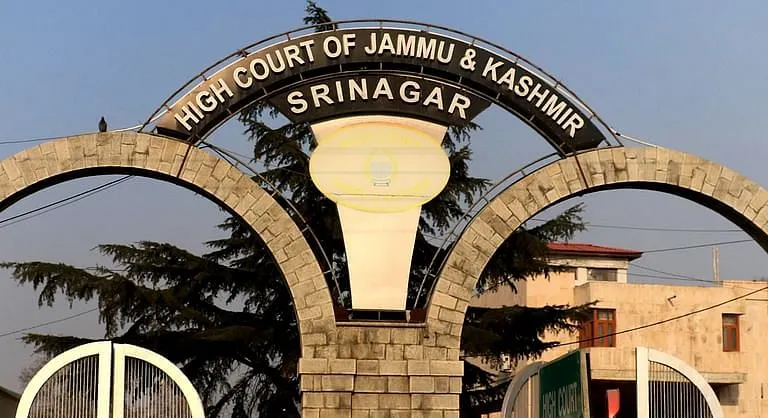Srinagar, Oct 18: The High Court of J&K and Ladakh on Tuesday dismissed an alleged armed dealer’s plea challenging the eviction notice issued by the Enforcement Directorate( ED) Sub Zonal Office, Jammu under section 8(4) of the Prevention of Money Laundering Act, 2002 in an alleged gun license case.
Syed Akeel Shah, the petitioner, had challenged the eviction notice issued to him on 23 September this year by ED, months after his property was attached by the central agency.
Shah had challenged the notice on the ground that the order of attachment of his property confirmed by the Adjudicating Authority under Section 8(3) of the Act of 2002 was appealable before the Appellate Tribunal within a period of forty-five days from the date on which a copy of the attachment was received by an aggrieved person. “The eviction notice provides only ten days time to the petitioner to vacate the subject property, and in case the eviction notice is given effect before the petitioner is in a position to avail the remedy of appeal, the appeal under section 26 of the Act of 2002, even if preferred within limitation, would be rendered otiose,” Shah through his counsel had submitted.
However, T.M.Shamsi, Deputy Solicitor General of India, appearing for the ED, submitted that Section 8(4) of the Act of 2002 clearly provides that owner or occupier of the attached property can be evicted forthwith after the order of attachment is confirmed by the Adjudicating Authority under Section 8(3) of the Act of 2002. “Rule 5(2) of the Prevention of Money-laundering (Taking Possession of Attached or Frozen Properties Confirmed by the Adjudicating Authority) Rules, 2013 provides ten days time to the owner/occupier of the attached property to vacate it,” he said, adding, “Therefore, it would not be correct to say that eviction proceedings can be initiated and the possession of the attached property can only be taken ten days after the expiry of the period of limitation provided for filing appeal against the order of confirmation of attachment passed by the Adjudicating Authority.”
Shamsi argued that interpreting the provisions in the manner suggested by the counsel for Shah would be tantamount to “rewriting the provisions of Section 8 of the Act and the Rules of 2013.”
After hearing the parties, a bench of Sanjeev Kumar dismissed the petition, underscoring that the Court is not required to resort to the principles of statutory interpretation to “construe and understand the otherwise plain, clear and unambiguous provisions of Section 8 of the Act of 2002 and the Rule 5(2) of the Rules of 2013.”






